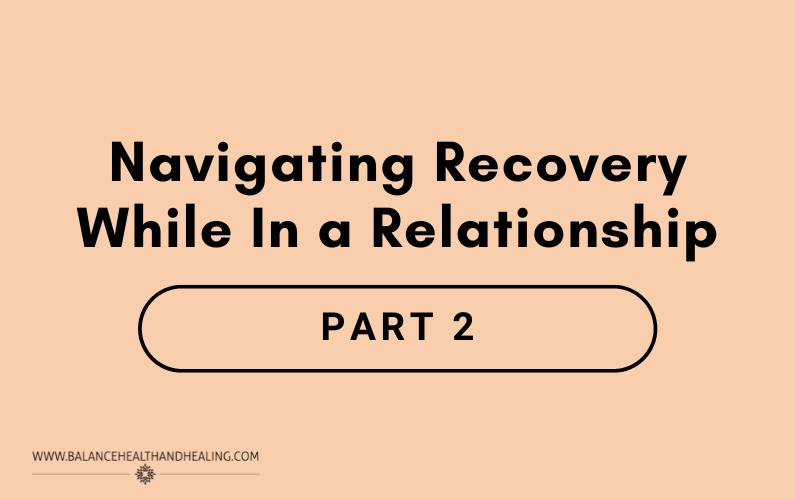
Navigating Recovery While In a Relationship: Part 2
Welcome to part 2! Here are some more answers to common questions I get about navigating eating disorder recovery while in a relationship. While these answers probably won’t feel like a perfect fit for your individual situation, I hope you’ll be able to draw some ideas and support from this post!
Q: How do we keep the eating disorder/recovery from taking over our lives? It feels like that’s all we talk about!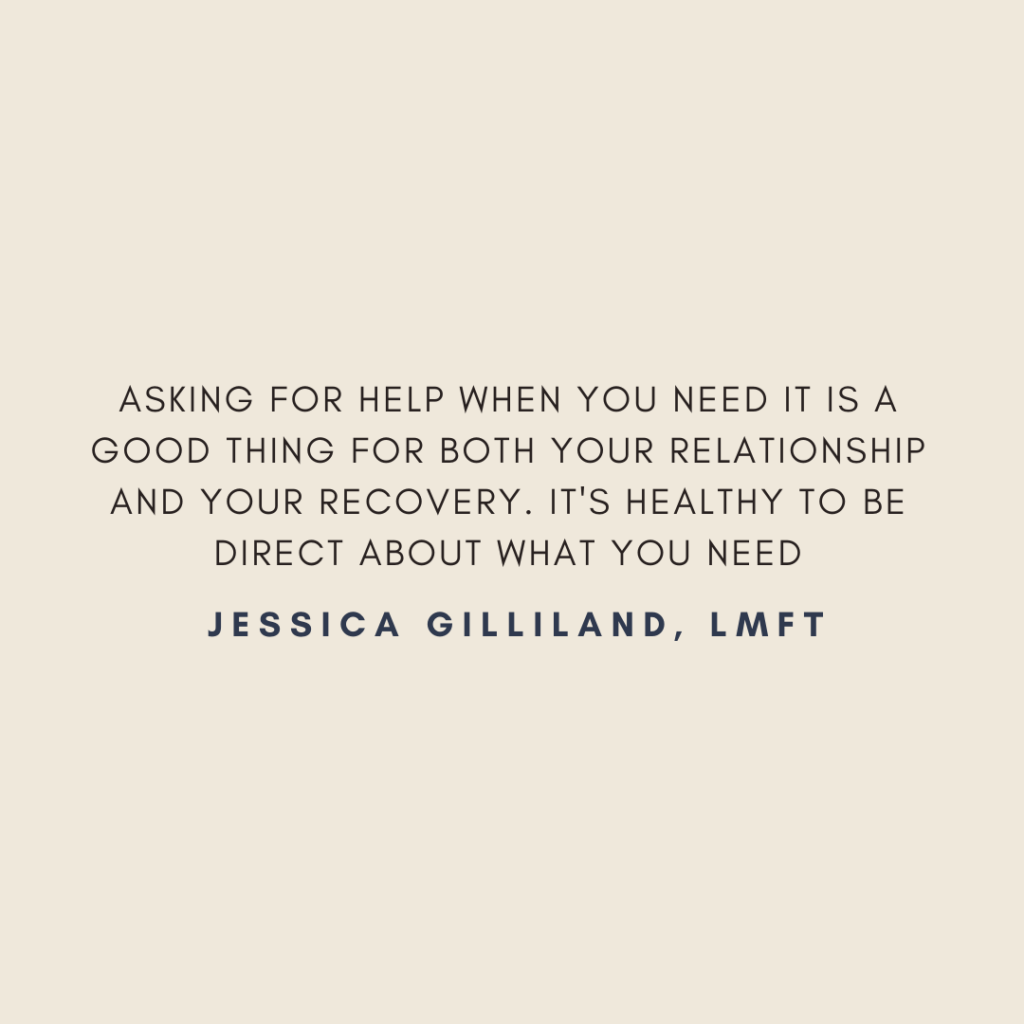
A: Eating recovery should be a big priority in your relationship, but it can’t be the only priority!
- Have fun together, go on dates often, and make some time for some activities that don’t involve food. Recovery can be hard work for both of you and setting aside time for fun is important.
- Commit to keeping your partner in the loop. More consistency in communication will help your partner feel they don’t have to check on you all the time.
- Keep getting to know each other outside of the emotional work of recovery. Ask each other questions about your hopes and dreams for the future. Ask specific questions about successes and struggles in each others’ lives that aren’t connected to the eating disorder. Whether you’ve been together a short time or a long time, it’s important to keep deepening your connection by being a part of each others’ inner worlds!
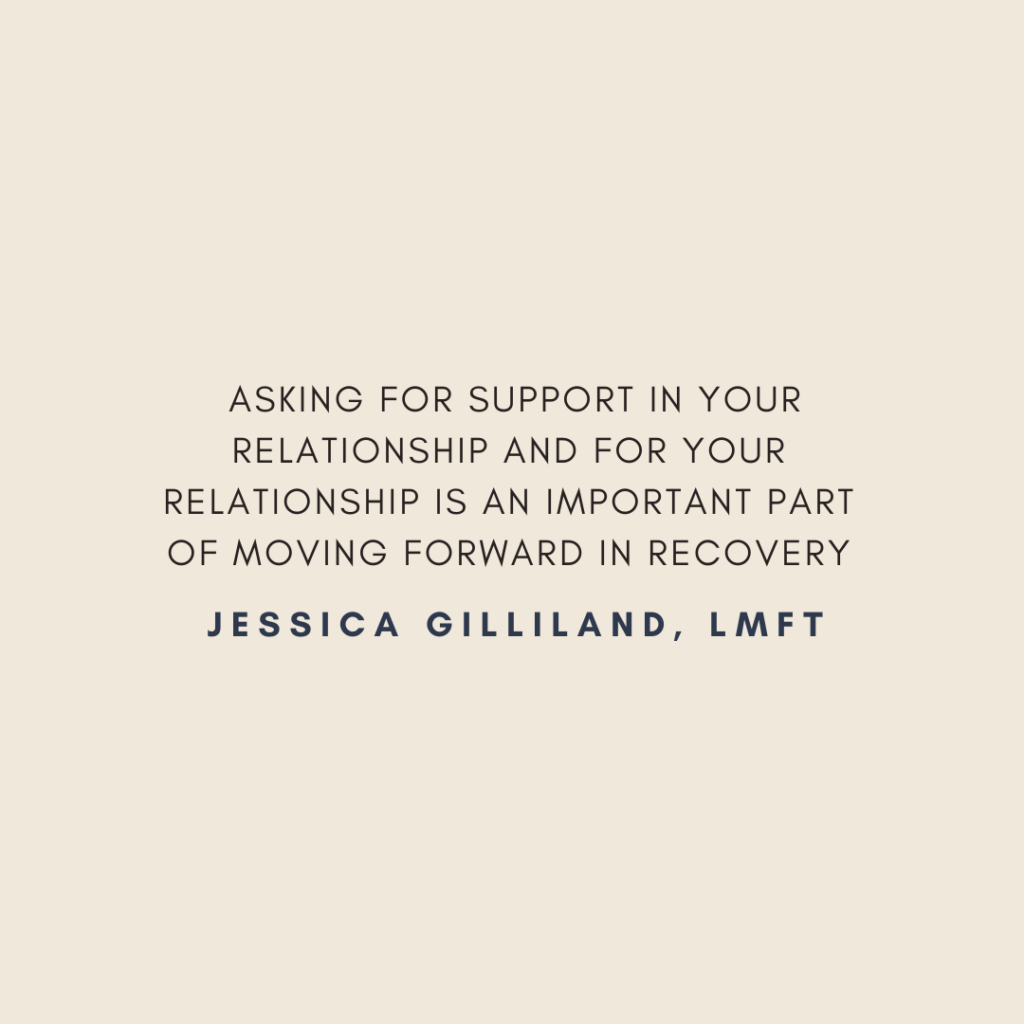
Q: How do I ask my significant other for help when I’m struggling with my eating disorder? I feel ashamed, and I don’t know how to bring up the fact that I’m having a hard time.
A: Reaching out for help can feel intimidating for a lot of reasons. Some practical ways to get the conversation started:
- Write out what you want to say before you say it. It’s okay to lean on a script for support. Try to be specific about what the struggle is, and give an example of what might help. Your therapist can support you in finding what you need to express. For example, “I need your support. I’m struggling with ____ (eating disorder behavior or thought). One way you could help me is ____.”
- Remember that struggling sometimes is normal! There are zero people who go through recovery without needing extra support sometimes. Asking for help when you need it is a good thing for both your relationship and your recovery. It’s healthy to be direct about what you need.
Q: I’ve been secretive about my eating disorder, and now my partner has a hard time trusting me. How can we rebuild trust?
A: Acknowledging that trust has been broken is the first step. Now you can set the intention to rebuild trust.
- Rebuilding trust takes specific, deliberate action. It won’t just happen on its own. If you can make a structured plan for accountability and honesty moving forward, you can take steps toward rebuilding trust. See my other blog post (part 1) for details about making a specific plan for checking in with each other.
- Allow your partner space to talk about their feelings. If they’re feeling hurt, angry, or frustrated about an aspect of your recovery, the best way through those difficult emotions is to talk about them together. These conversations might be heavy and will require significant courage and trust from both of you. Getting support from a couples therapist can help you as you work through the emotional aspects of recovery.
I know we haven’t even scratched the surface on how complex recovery and relationships can be, but hopefully, this can be a place for you to begin. I hope you’ll remember this: asking for support in your relationship and FOR your relationship is an important part of moving forward in recovery.


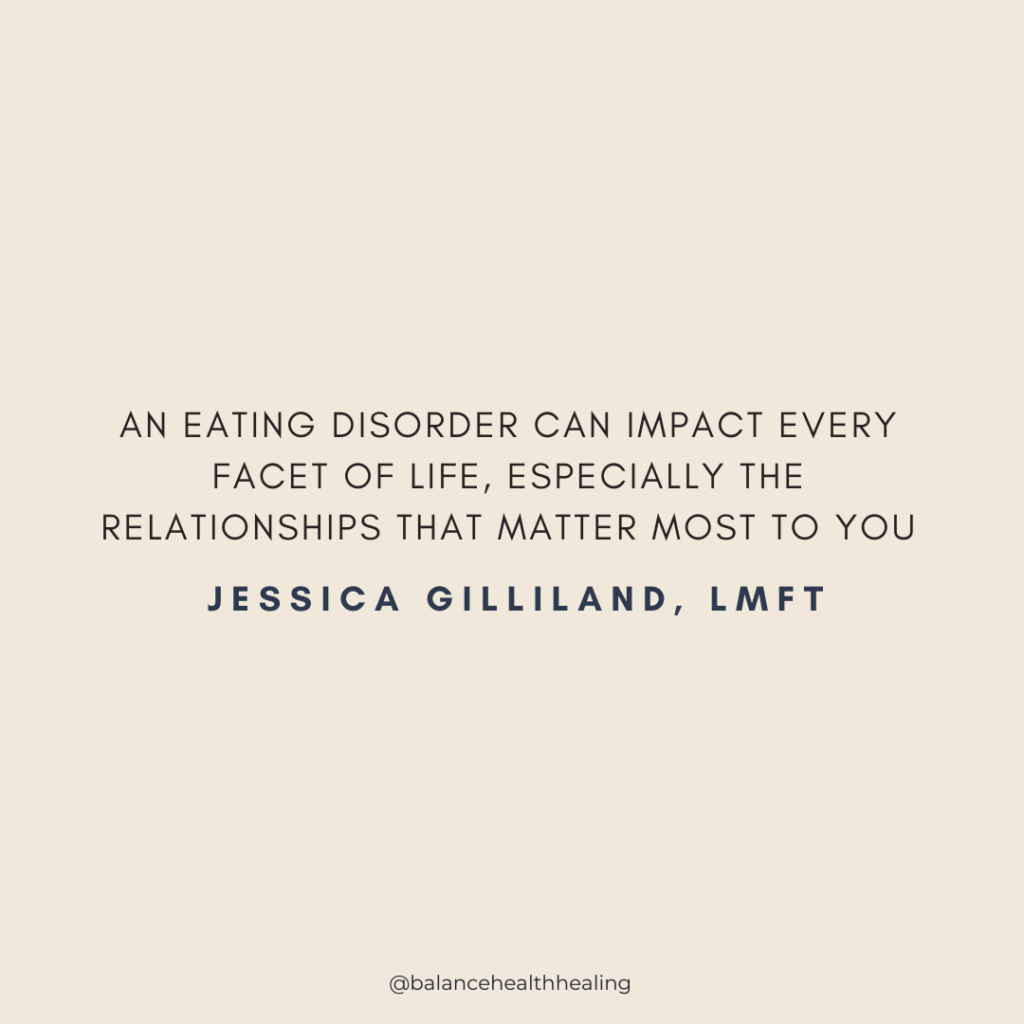 Over the next few blog posts, I’ll be answering some common questions about handling different aspects of recovery while in a relationship. Let’s dive in!
Over the next few blog posts, I’ll be answering some common questions about handling different aspects of recovery while in a relationship. Let’s dive in! your partner to join a session occasionally. Your therapist can support you in explaining how you’re feeling, and in addressing concerns that you and your partner might have about recovery.
your partner to join a session occasionally. Your therapist can support you in explaining how you’re feeling, and in addressing concerns that you and your partner might have about recovery.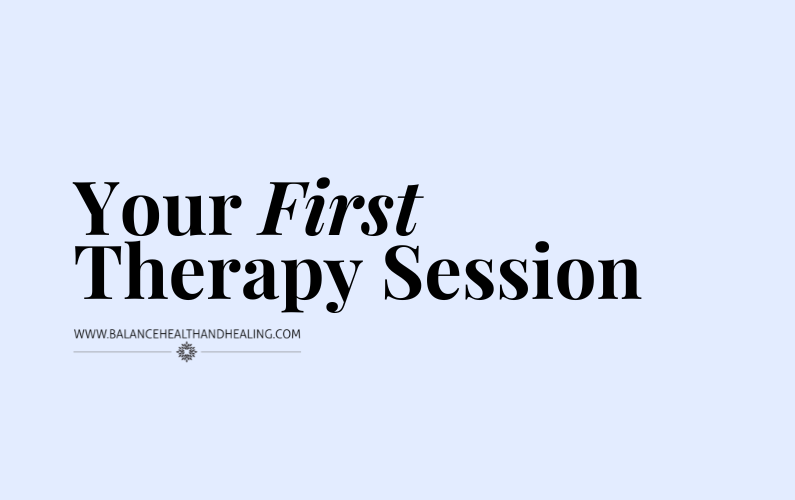
 If you’re having any of these thoughts as you consider starting therapy, I want to reassure you that you’re definitely not alone! It makes sense that coming in for your first therapy session can feel a bit intimidating. As a therapist, I’d say that most people feel some nervousness about coming into therapy for the first time. In this blog post, I’ll share my answers to a few of the questions I often hear from people about what to expect from a first therapy session. If you’re thinking about starting therapy, I hope you’ll find something helpful here!
If you’re having any of these thoughts as you consider starting therapy, I want to reassure you that you’re definitely not alone! It makes sense that coming in for your first therapy session can feel a bit intimidating. As a therapist, I’d say that most people feel some nervousness about coming into therapy for the first time. In this blog post, I’ll share my answers to a few of the questions I often hear from people about what to expect from a first therapy session. If you’re thinking about starting therapy, I hope you’ll find something helpful here!

 turning off notifications on many of the apps that tend to distract me. Apps are designed to get us to spend more time on them, especially by sending us notifications about new posts, new discounts, new products, etc. Without the notifications pulling me in, I get to be the one to choose when I engage with those apps.
turning off notifications on many of the apps that tend to distract me. Apps are designed to get us to spend more time on them, especially by sending us notifications about new posts, new discounts, new products, etc. Without the notifications pulling me in, I get to be the one to choose when I engage with those apps.

 You’ve probably heard the phrase, “Love is a verb.” In other words, if you love someone, you show that love through your actions. Your love is more than just a feeling; it’s a set of choices and behaviors that helps your relationship grow. Here’s a hot take: your relationship with your body can thrive off of loving
You’ve probably heard the phrase, “Love is a verb.” In other words, if you love someone, you show that love through your actions. Your love is more than just a feeling; it’s a set of choices and behaviors that helps your relationship grow. Here’s a hot take: your relationship with your body can thrive off of loving 